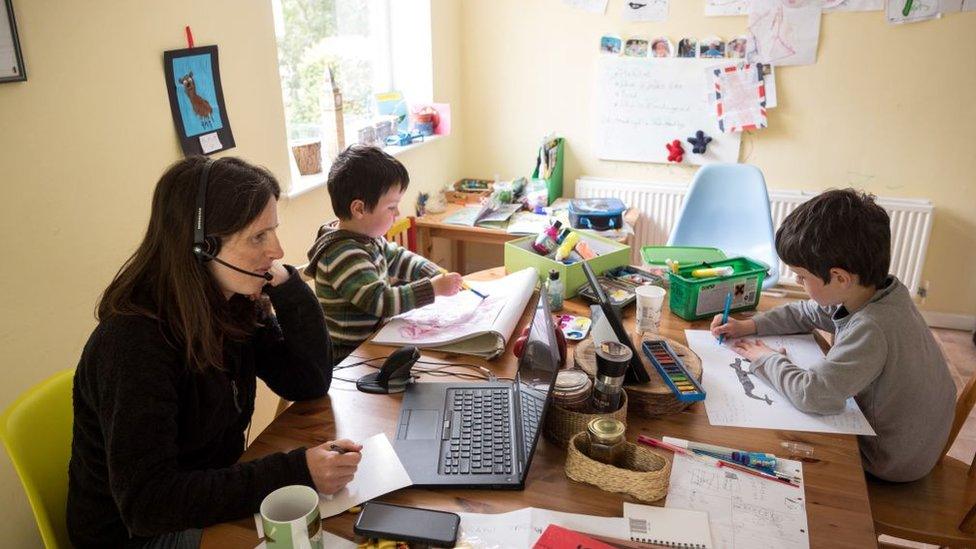Covid: Shut schools 'like systematic neglect' to disadvantaged pupils
- Published
- comments
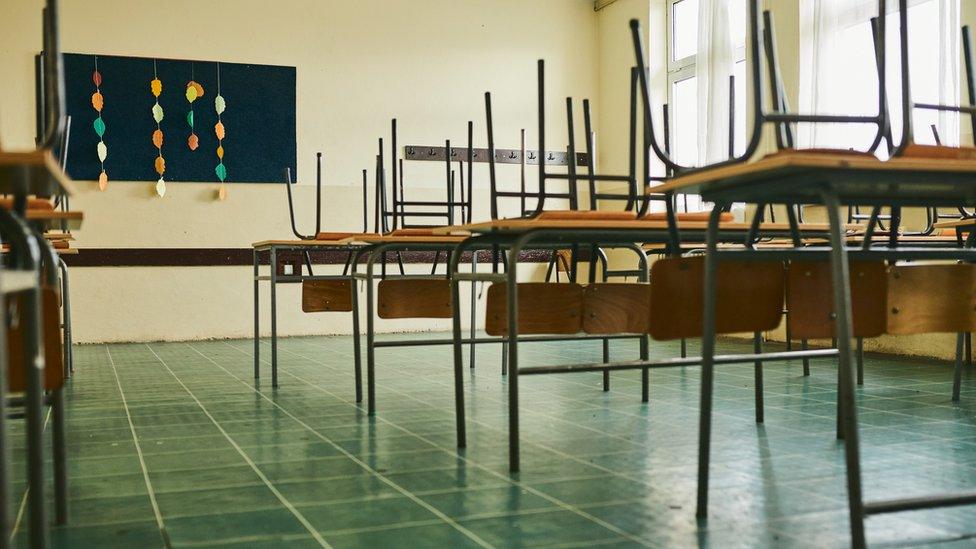
Schools and colleges in Wales moved to online learning before Christmas
Keeping schools shut during the Covid pandemic is "almost like systematic neglect" to disadvantaged pupils, a head teacher has said.
Cardiff head Armando Di-Finizio said there was a "fair degree of trauma" among pupils because of the lockdowns.
One expert said children from disadvantaged backgrounds were falling furthest behind academically.
The Welsh Government said it ensured vulnerable children could continue to attend school.
Before the pandemic the proportion of pupils receiving free school meals who achieved five or more GCSEs was 32% lower than the figure for other pupils in Wales.
At Eastern High School, where 47% of children receive free school meals, Mr Di-Finizio said the challenges of lockdown were greater for pupils who may not have support or structure at home for learning.
'Years to unpick trauma'
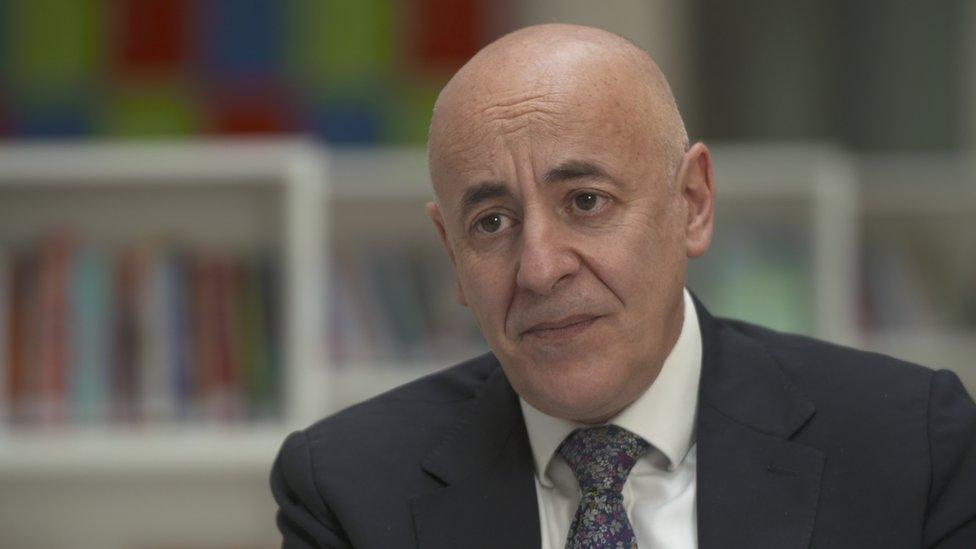
Armando Di-Finizio, head teacher of Eastern High School, says the the attainment gap among pupils is "widening"
Mr Di-Finizio told Wales Live he did not think the balance was right "between those who are genuinely vulnerable" with the virus and young people who are vulnerable in terms of their welfare and wellbeing and their academic progress.
"I think there would have been other ways to handle this because we are seeing students struggling because of it and the attainment gap is widening for this generation," he said.
"It's almost like systematic neglect of young people that is going on day after day, week after week, month after month.
"We have to somehow pull this back because I do wonder one day, how the children will look back and judge us in terms of our responses."
Another concern since the pandemic began, he said, was the fact the number of child protection cases at his school has doubled.
"I don't want to sound alarmist, but I do believe it will take a number of years for us to unpick the traumas that young people go through because we don't know yet just what this lasting impact will be," he added.
'Exposes deep disadvantage'

Professor Chris Taylor says home learning reduces the ability to provide a "level playing field" for education
Welsh Chief Inspector of Schools Meilyr Rowlands, has previously said there was evidence of widening inequality in performance as a result of the pandemic.
Social Sciences Prof Chris Taylor, from Cardiff University, said this gap was continuing to widen.
"Closing schools exposes and accentuates the deep disadvantage that many families have across Wales in the different circumstances that they're in," Prof Taylor said.
Home learning reduces the ability of schools "to provide that level playing field" for educational opportunities.
"Instead, we're relying on what families and households can produce and provide to support that learning," he said.
Prof Taylor added some children would "feel like they've left school at the age of 14 or 15, instead of 18" in terms of their learning, and the focus for them should be preparing for the next step in their education rather than exams that are not going to happen this summer.
He said some pupils who may have been planning to leave school at 16 should remain in education until they are 18 to "remedy some of the missed opportunities", and that summer school and activities should be put on to help address isolation.

BITESIZE CYMRU WALES: Educational programmes in English and Welsh
LOCKDOWN LEARNING: How can BBC Bitesize help you learn from home?


Almost half of all pupils receive free school meals at Eastern High School in Cardiff
Siân Gwenllian MS, Plaid Cymru's education spokeswoman, has called on the Welsh Government to publish a plan on how pupils will be helped to catch up with "lost education".
"Those children in more deprived areas have been doubly disadvantaged - coronavirus has been more prevalent in these areas, meaning they will have lost more school prior to the lockdown, and these children are less likely to have the means to access online learning," she said.
A Welsh Government spokesman said it had provided "more than 130,000 [electronic] devices" since the start of the pandemic for pupils' home learning.
"We've also recruited more than 1,000 teaching and support staff to provide additional support for learners who may have missed out on teaching time due to the pandemic," he said.
The government has ensured vulnerable children, as well as children of critical workers, could continue to attend school throughout the pandemic, he added.
- Published5 January 2021
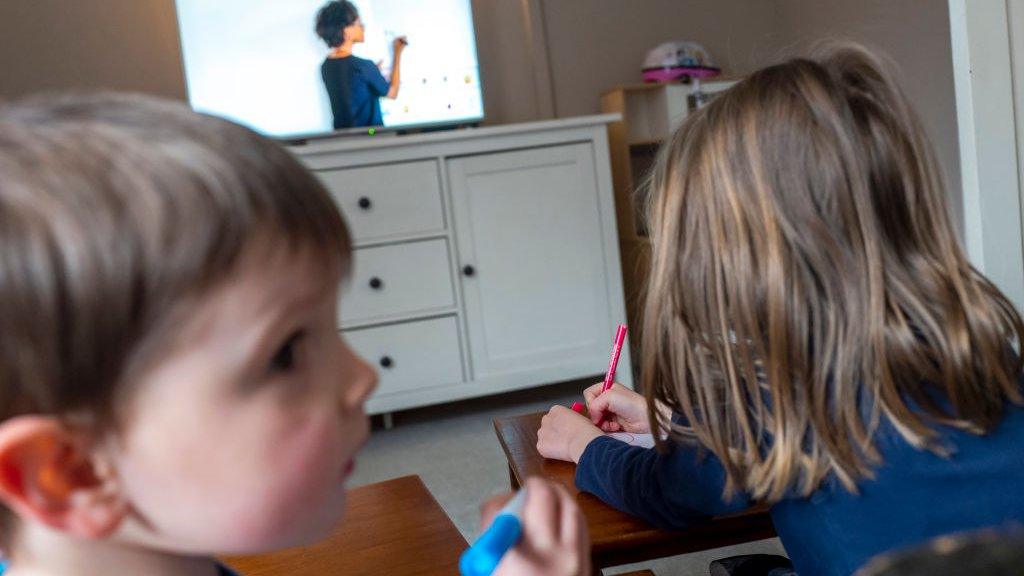
- Published8 January 2021

- Published7 January 2021

- Published5 January 2021
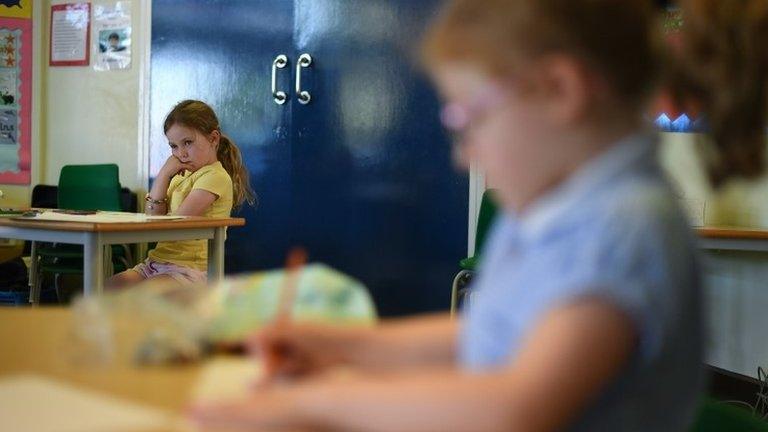
- Published16 January 2021
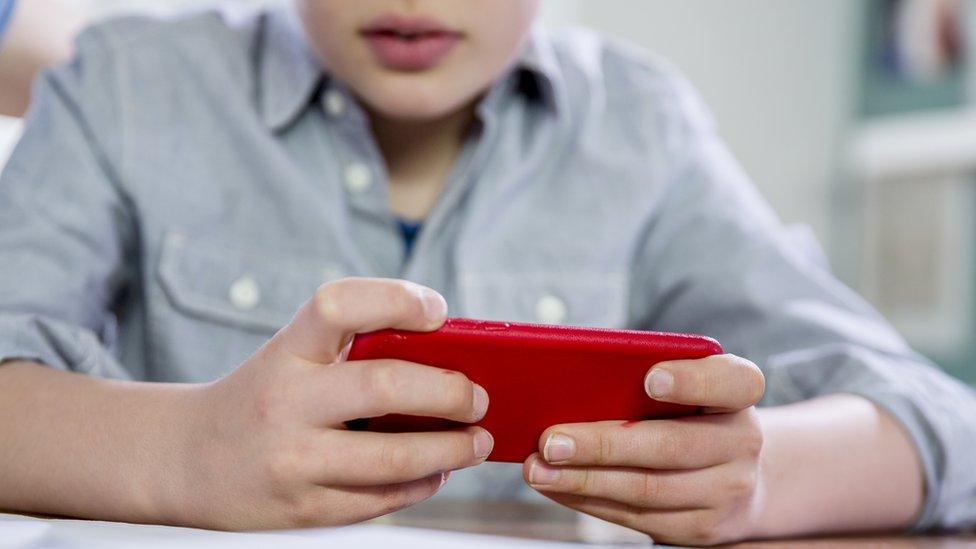
- Published25 June 2020
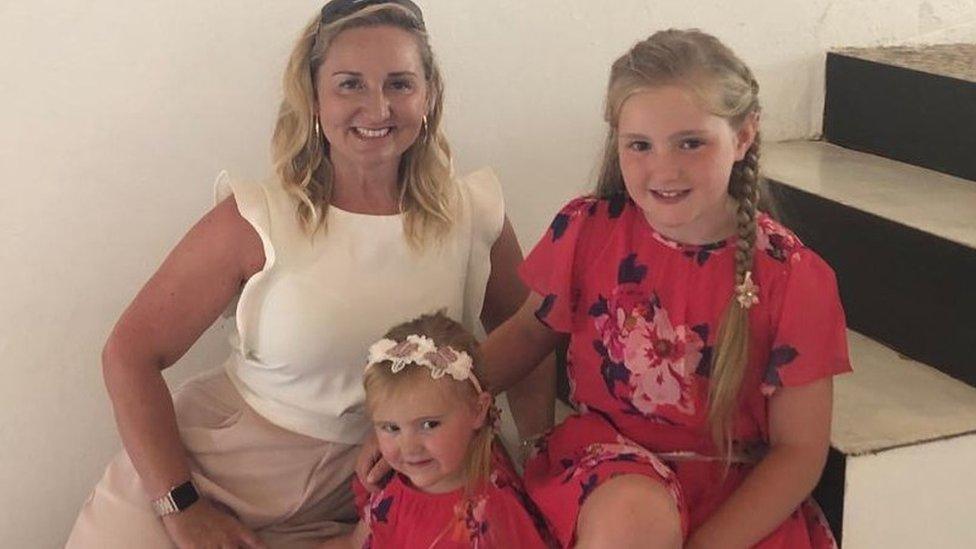
- Published11 January 2021
